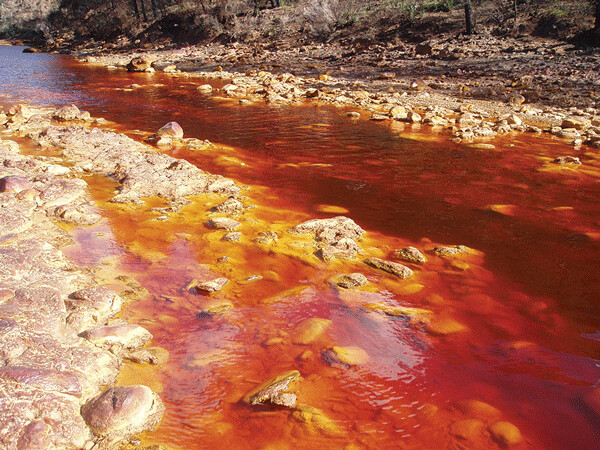News & Articles
Browse all content by date.


Nolan’s H.R. 3115, the Superior National Forest Land Exchange Act of 2017, passed the full House of Representatives on November 27. Nolan’s infamous H.R. 3115 has been sent to the Senate and referred to the Committee on Agriculture, Nutrition, and Forestry, where it could be attached to a must-pass Ag bill.
H.R. 3115 seeks to override citizen lawsuits in order to push forward and facilitate PolyMet’s highly controversial plan to mine copper-nickel sulfide ores in the headwaters of Lake Superior. The history of toxic copper-nickel sulfide mining is one of polluted water, destruction of forests, harm to wildlife, and damage to human health. PolyMet’s own environmental impact statement acknowledges that water from the mining process would need to be treated for at least 500 years. Virtually forever.
H.R. 3115--a Toxic Giveaway
Minnesota’s 8th District Congressional Rep. Richard Nolan’s bill for PolyMet’s NorthMet mine is a giveaway of public lands and a huge windfall for foreign mining corporation PolyMet and its major investor, Glencore. H.R. 3115 would mandate and compel the exchange of 6,500 acres of federal Superior National Forest land to be handed over to PolyMet for their proposed open pit copper-nickel sulfide mine, specifying that the deal must be completed within 90 days of the bill becoming law. This action would circumvent four legal challenges that are already in process regarding the land exchange.
Nolan’s “special favors” bill for PolyMet Mining Corporation would fast-track the exchange of public lands to benefit the first ever copper-nickel mine in Minnesota, and would pave the way for further giveaways of public land as political momentum continues to favor mine expansion at all costs. According to Lori Andresen of Save Our Sky Blue Waters, “The PolyMet bill sets a terrible example for how highly contentious, unpopular, and environmentally damaging projects are dealt with by our politicians. The PolyMet bill is a flagrant end-run around current laws in order to hand over protected Superior National Forest land to a foreign mining corporation.”
Environmental Injustice for Those Downstream
The federal lands PolyMet wants are located on the headwaters of Lake Superior upstream of the St. Louis River, the largest U.S. tributary to Lake Superior, flowing through the Fond du Lac Reservation and the cities of Cloquet and Duluth in Minnesota and Superior, Wisconsin.
Anyone living in the watershed would be at risk for contaminated water, or even a major tailings dam disaster, as additional toxic mine waste continues to be piled onto an existing unstable tailings basin. The PolyMet tailings impoundment has the same design as the ill-fated Canadian Mount Polley tailings dam that collapsed in 2014, spewing tons of polluted water and slurry into the watershed.
All citizens stand to lose 6,500 acres of high quality and intact forest and waters if Superior National Forest is turned into a wasteland. The PolyMet mine would destroy thousands of acres of high-quality wetlands and forests, leaving behind long-term toxic water pollution in the Great Lakes, and would destroy critical habitat for threatened Canada lynx, the gray wolf, and the northern long eared bat.
Undermining Citizen Due Process Rights and Environmental Protections
Rep. Nolan’s bill undermines bedrock environmental laws and would negate watershed protections put in place as far back as the Weeks Act of 1911, while totally ignoring pollution impacts and costs to the generations to follow. H.R. 3115 is a scheme to get around existing law which prohibits open pit mining in Superior National Forest and forcing through a land exchange that is being challenged in court.
While constantly claiming that we need to let the environmental process proceed, Nolan seeks to override the process--because PolyMet’s mine plan is too polluting and destructive to stand on its own. Evidently the only way that PolyMet can get approved is through special legislative intervention by politicians, and by bypassing legitimate citizen rights and concerns. If passed, the PolyMet bill would set a dangerous precedent for Washington, D.C. politicians to pass special interest bills that overturn current laws and protections to satisfy industrial interests.
Special interests win, the environment loses. The politicians pushing sulfide mining will be long gone, but the toxic legacy of sulfide mining will be left for others to deal with far into the future. Such political pandering for a toxic mining industry, over the interests of the general citizen population, is why the American people have so little trust in our government and in politicians.
Protect Minnesota’s Arrowhead Region from “Highly Toxic Sulfide Waste”
The Arrowhead Region of Minnesota contains the triple watersheds where waters flow north, east, and south into the Rainy River, Lake Superior, and the Mississippi. The headwaters of this region are too valuable to be put at risk from toxic sulfide mining schemes.
The public lands that PolyMet wants for its open pit mines are protected under the Weeks Act. The purpose of the Weeks Act was to acquire lands for the protection of headwater rivers and watersheds. The Partridge River runs through the public lands that PolyMet is seeking to acquire, and would be severely degraded by the mining activities. The PolyMet mine would destroy nearly 1,000 acres of irreplaceable pristine wetlands. Of what value is protecting waterways and headwater areas if that land can be traded away for destruction at the request of a mining corporation?
Toxic Trade
The potential to pollute and poison the St. Louis River watershed is an issue of great tragedy. The largest human population in northeast Minnesota lives downstream of the proposed PolyMet sulfide mine. The threats to human health from toxic sulfide mining are being ignored on all levels of government. According to Le Lind of the Save Lake Superior Association, “ Passage of H.R. 3115 would be lying to our youth and general population about risks to health and about citizen rights to solid scientific evidence. Education would be set back by decades while we consume polluted water.”
Toxic heavy metals can accumulate in the body and food chain, creating chronic health conditions, neurological problems, cancer, and lowered IQ. The most commonly found heavy metals include arsenic, cadmium, chromium, copper, lead, nickel, and zinc, all of which cause risks for human health and the environment (Lambert et al., 2000). Yet the political process to permit PolyMet avoids any mention of negative or long-term impacts of such toxic mining in our major headwaters.
PolyMet Sulfide Mining Snowplow
As part of the power play to give our National Forest lands to a foreign mining company, the Lake Superior watershed and its people have been offered up as the sacrificial lambs. Powerful political interests have aligned in St. Paul and in Washington, D.C. to permit PolyMet but deny (or delay) Twin Metals. This strategy will never work, as a massive sulfide-mining district will continue to expand around a permitted PolyMet mine and water pollution will contaminate both watersheds--that of the Boundary Waters as well as Lake Superior.
Politicians, however, are willing to make this Faustian bargain. By facilitating and promoting PolyMet, Rep. Nolan is willing to expose all of the citizens living downstream of PolyMet to health risks, and he is willing to place the burden of clean-up and related costs to future generations.
At the same time, he is willing to override due process for his own constituents who are involved in lawsuits against the U.S. Forest Service regarding the land exchange of Superior National Forest lands to PolyMet. H.R. 3115 is unethical and egregious. If allowed to pass through Congress, this bill will set a precedent which undermines citizen rights to due process throughout our entire country.
Summary
H.R. 3115 is a direct giveaway to a foreign mining company, and is a bill that denies American citizens their rights to due process under the law. This bill is a state-wide political liability when three-fourths of Minnesotans surveyed oppose PolyMet’s proposed sulfide mine. Whether this bill passes the Senate and becomes law depends in great part upon the actions--or inactions--of Senators Amy Klobuchar and Al Franken.
If Minnesota’s two Democratic senators support passage of this bill in the Senate, then they will carry the legacy of removing citizens’ constitutionally protected rights to due process, overriding citizen rights to legal action as outlined in the National Environmental Policy Act (NEPA), and as part of the environmental review process. Along with Nolan, Klobuchar and Franken will be responsible for leaving behind a legacy of toxic pollution and degradation of the environment in Minnesota for all future generations.
The fate of Nolan’s H.R. 3115, the Superior National Forest Land Exchange Act of 2017, will show us whether our government represents citizen democracy or corporate power and greed. The spotlight is now on our senators.
Will Senators Klobuchar and Franken Put Corporate Profits Above the People, Land, Water and Wildlife of the Arrowhead?
Tell Senators Klobuchar and Franken to just say “No” to Nolan’s Toxic PolyMet Bill!
Please phone & e-mail Senators Franken and Klobuchar and ask them to oppose any kind of special favors land exchange legislation that benefits multinational mining corporations.
Senator Klobuchar:
(202) 224-3244 (D.C. office)
(612) 727-5220 (Minneapolis office)
Senator Franken:
(202) 224-5641 (D.C. office)
(651) 221-1016 (St. Paul office)
(Use their senate website forms to email.)
For more information got to www.sosbluewaters.org.
| Tweet |


